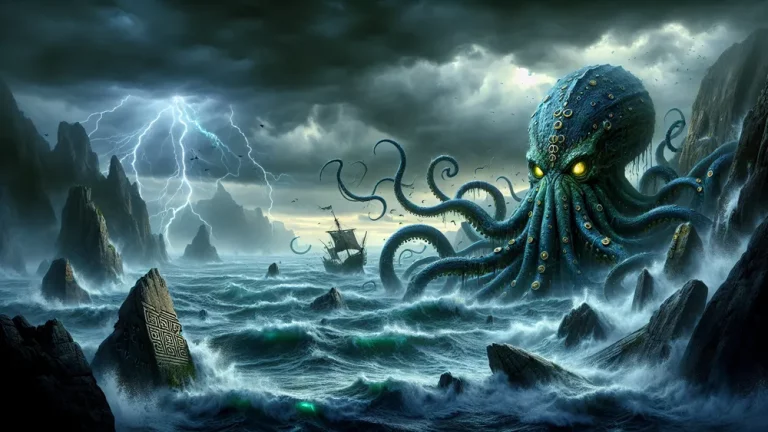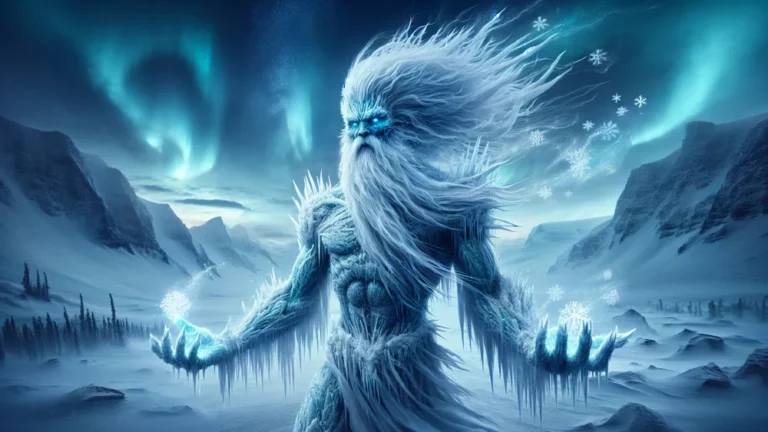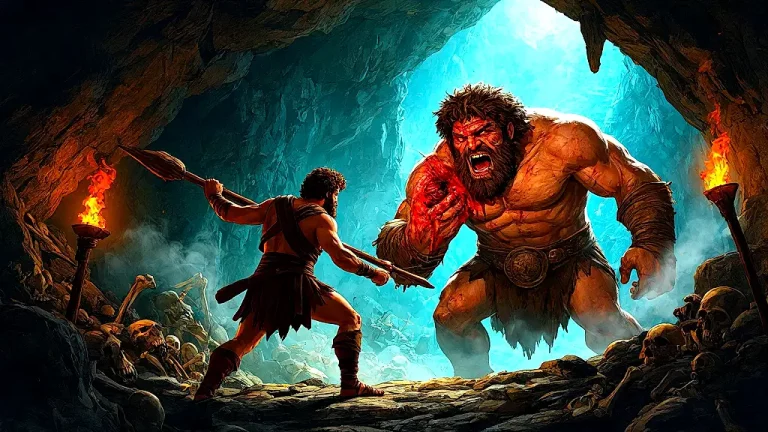127 Strong And Unique Greek Mythology Boy Names For Your Hero
Greek mythology is more than old stories. It’s a rich source of names tied to heroes, gods, and epic adventures. Think about naming your son Achilles, linked to incredible fighting ability, or Perseus, who defeated Medusa. These names are more than labels. They carry legacies of courage, cleverness, and strength, built over thousands of years of storytelling.
Key Points:
- Greek mythology names like Zeus and Apollo come from powerful gods linked to sky, light, and war.
- Heroes such as Heracles and Perseus did big things like finishing 12 labors or killing Medusa.
- Titans like Cronus and Atlas ruled before the Olympians and stood for time and strength.
- Monster names like Cerberus and Hydra sound scary because they guarded the underworld or grew extra heads.
- Lesser-known heroes like Philoctetes and Talus had their own stories but aren’t as famous.
- Names often meant something, like Odysseus meaning to hate or Heracles ironically honoring Hera.
- Greeks picked names based on gods, family, or traits, making them meaningful.
Here, you’ll find over 120 names from Olympian gods, demigods, Titans, and even monsters. Each one comes with a story. You might like Zeus for his power or Hector for his nobility. These names aren’t just unique. They also connect your child to ideals of excellence. Some myths have different versions, like Heracles’ origins. We’ll point those out. Ready to start? Let’s begin with the gods of Olympus.
Greek Mythology Boy Names: Overview and Key Facts
| Category | Key Names (Examples) | Meaning/Association | Mythological Significance |
|---|---|---|---|
| Olympian Gods | Zeus, Apollo, Ares | Zeus: “Sky”; Apollo: “Light” | They ruled Olympus. Zeus controlled lightning, while Apollo governed prophecy and music. |
| Demigods and Heroes | Heracles, Perseus | Heracles: “Glory of Hera” (ironically) | Heracles finished 12 labors. Perseus killed Medusa. Different myths disagree on their origins. |
| Titans | Cronus, Atlas | Cronus: “Time”; Atlas: “Enduring” | They ruled before the Olympians. Atlas held up the sky, and Cronus ate his children (stories vary). |
| Monsters | Cerberus, Typhon | Cerberus: “Spotted” | Cerberus was the Underworld’s guard. Typhon, a storm giant, was overthrown by Zeus. |
| Underworld Figures | Hades, Charon | Hades: “Unseen”; Charon: “Fierce glow” | Hades ruled the dead. Charon carried souls across the Styx – coins were left on bodies for payment. |
| Forgotten Heroes | Bellerophon, Orpheus | Bellerophon: “Slayer of Belleros” | Bellerophon tamed Pegasus. Orpheus’s music moved Hades (some say he almost saved Eurydice). |
Note: Myths often have conflicting versions (e.g., Heracles’ name either honored or mocked Hera). Greek names like “Zeus” differ from Roman ones like “Jupiter.”
20 Boy Names Inspired by Olympian Gods
The Olympian gods ruled ancient Greece, representing thunder, love, wisdom and other forces. Their names carry power and legend, making them strong choices today. Here are 20 powerful names from these gods, each with its own story:
- Zeus – The king of gods who commanded lightning bolts and defeated the Titans.
- Apollo – God of sunlight, music and prophecy who protected Delphi’s oracle.
- Ares – God of brutal war, unlike Athena who represented military strategy.
- Poseidon – Ruler of the seas who could create storms and earthquakes with his trident.
- Hephaestus – The blacksmith god who made armor for Achilles.
- Hermes – The messenger who wore winged sandals to escort souls to the Underworld.
- Dionysus – God of wine and celebration who, in some stories, was born from Zeus’s thigh.
- Hades – Though not technically an Olympian, he famously ruled the Underworld.
- Asclepius – The healing god who angered Zeus by bringing people back to life.
- Eros – God of love whose arrows made people fall in love (later called Cupid).
- Helios – Originally a Titan, he drove the sun chariot across the sky each day.
- Pan – Wild god of nature known for playing panpipes in the forests.
- Hypnos – God of sleep and twin brother of Thanatos (Death).
- Aether – Personification of the bright upper air and pure light.
- Momus – The god who mocked others, even criticizing Zeus’s creations.
- Phosphorus – As the morning star, he announced each new dawn.
- Priapus – Fertility god known for his exaggerated physical features.
- Zephyrus – The west wind who brought gentle spring breezes.
- Castor – Mortal twin son of Zeus who shared Gemini’s constellation.
- Pollux – His immortal brother who gave Castor part of his immortality.
Note: Some like Hades and Helios weren’t Olympians originally but became associated with them later.
30 Brave Humans and Demigods from Myths
Greek mythology’s demigods combined human and divine traits. These heroes faced impossible challenges, fought dangerous monsters, and became legends that remain famous today. From Heracles‘ strength to Odysseus‘ cleverness, they represent some of the greatest heroes in myth:
- Heracles – Completed 12 Labors for Eurystheus, including killing the Nemean Lion
- Perseus – Cut off Medusa’s head and later used it as a weapon against enemies
- Achilles – Nearly invincible warrior whose heel was his only weakness
- Theseus – Found his way through the Labyrinth to defeat the Minotaur
- Jason – Assembled the Argonauts to retrieve the Golden Fleece
- Odysseus – Designed the Trojan Horse and survived a 10-year journey home
- Bellerophon – Rode Pegasus when he killed the fire-breathing Chimera
- Orpheus – Tried to rescue Eurydice from the Underworld with his music
- Meleager – Organized the hunt for the destructive Calydonian Boar
- Cadmus – Established Thebes after killing a dragon and sowing its teeth
- Peleus – Captured the sea nymph Thetis, who became Achilles’ mother
- Atalanta – Joined the Argonauts as their only female member
- Diomedes – Wounded both Ares and Aphrodite during the Trojan War
- Ajax the Great – Came close to defeating Hector in single combat
- Ajax the Lesser – Angered Athena when he attacked Cassandra
- Teucer – Famed archer who fought alongside his half-brother Ajax
- Neoptolemus – Killed King Priam during the fall of Troy
- Memnon – Led Ethiopian forces at Troy as the son of the dawn goddess
- Sarpedon – Zeus’ son who died fighting for Troy
- Glaucus – Swapped golden armor with Diomedes during a battle
- Oedipus – Solved the Sphinx’s riddle to save Thebes
- Hector – Troy’s greatest defender and most noble warrior
- Aeneas – Survived Troy’s fall to eventually found Rome
- Castor – Mortal twin who shared immortality with Pollux
- Pollux – Divine twin who gave Castor half his immortality
- Triptolemus – Taught agriculture across Greece for Demeter
- Asclepius – Became the god of healing after proving his skill
- Orion – The great hunter who became a constellation
- Perseus – Used Medusa’s head to turn enemies to stone
- Icarus – Flew too close to the sun with wax wings
Note: Atalanta appears here despite being female because of her heroic deeds. Different myths tell varying stories – some claim Icarus’ father Daedalus had divine blood.
15 Powerful Titan and Primordial Names
Before the Olympians took over, the universe began with the Primordials – the first gods – and their children, the Titans. These ancient deities stood for basic natural forces, from the ground we walk on to time itself. Though the Olympians defeated them, their names remain powerful in myths:
- Gaia – The earth itself and source of all living things
- Uranus – The sky god who fathered the Titans
- Tartarus – The deepest pit below the Underworld
- Erebus – The darkness filling the Underworld
- Nyx – Night personified, who gave birth to concepts like death and sleep
- Cronus – The Titan king who overthrew his father Uranus, later overthrown by Zeus
- Rhea – Cronus’ wife who saved Zeus by tricking her husband
- Oceanus – The Titan whose river circled the whole world
- Tethys – Fresh water goddess married to Oceanus
- Hyperion – Light Titan, father to the sun, moon and dawn
- Theia – Shining Titaness associated with vision and radiance
- Coeus – Titan of intelligence who held up the sky’s axis
- Phoebe – Moon Titaness who controlled prophecy
- Iapetus – Titan of human mortality, father of Prometheus
- Themis – Titaness who maintained divine laws and justice
Note: Some myths count Eros as a Primordial too. We use the Latin spelling Uranus instead of Ouranos because it’s more familiar.
15 Bold Names from Mythical Monsters
Greek mythology is full of dangerous creatures that fought both gods and heroes. These beings represented basic human fears and uncontrollable natural dangers. Their names still sound frightening today:
- Cerberus – The three-headed dog that guarded the Underworld’s gates
- Hydra – A poisonous snake that grew two new heads whenever one was cut off
- Chimera – A fire-breathing mix of lion, goat and snake parts
- Minotaur – A bull-headed man who lived trapped in the Labyrinth
- Medusa – A Gorgon who could turn people to stone by looking at them
- Cyclops – Massive one-eyed giants who made Zeus’ lightning weapons
- Scylla – A six-headed monster that attacked ships near Charybdis
- Charybdis – A deadly whirlpool that swallowed entire vessels
- Harpies – Winged creatures who stole people and things
- Griffin – A powerful combination of eagle and lion features
- Sphinx – Killed those who couldn’t answer her riddles
- Echidna – Half-woman, half-snake mother of many monsters
- Typhon – Zeus’ greatest enemy among all monsters
- Ladon – A dragon with one hundred heads that protected golden apples
- Nemean Lion – A lion whose skin couldn’t be pierced by weapons
Note: Some creatures like the Griffin came from other myths before the Greeks used them. Different stories give varying details – some say the Hydra had nine heads while others say more.
15 Forgotten Heroes from Greek Tales
Besides the well-known heroes like Hercules, many other important figures appear in Greek myths. These lesser-known characters had their own important stories, though most people don’t remember them today. Here are 15 interesting heroes that deserve more attention:
- Philoctetes – Kept Heracles’ famous bow but got left behind on Lemnos island
- Talus – A living bronze statue that protected Crete’s shores
- Mopsus – Joined the Argonauts and beat another prophet in a contest
- Idmon – Another Argonaut who predicted his own death during the voyage
- Lynceus – Could see incredibly far, which helped the Argonauts
- Palaemon – Started as a sailor before becoming a minor sea god
- Tenes – A prince falsely accused and later worshipped on Tenedos
- Ceyx – A king the gods changed into a kingfisher bird
- Pandion – An Athenian king whose children had tragic fates
- Tereus – His terrible actions led to the famous Procne story
- Iphitus – Heracles’ friend who died by accident during their travels
- Acastus – Organized the famous hunt for the Calydonian Boar
- Euryalus – The youngest fighter in the attack against Thebes
- Chromis – A Mysian leader Homer mentions in the Iliad
- Cleobis – Died young after an extraordinary act of strength for his mother
Note: Most of these heroes appear in just one or two ancient texts. Some, like Talus, are hard to classify as either hero or creature. Different areas had their own versions – people on Tenedos especially honored Tenes.
17 Legendary Names from Epic Quests
Greek mythology’s greatest adventures turned regular people into famous heroes through difficult tests requiring bravery, cleverness, and stamina. These famous journeys – for magical items, lost loved ones, and gifts from the gods – produced names we still associate with great journeys today. Here are 17 important figures whose adventures became important in Greek hero stories:
- Jason – Organized the Argonauts to find the magical Golden Fleece
- Medea – Used magic to help Jason but later caused his downfall
- Orpheus – Went to the Underworld to try bringing his wife back
- Atalanta – The fastest woman who sailed with the Argonauts
- Heracles – Finished twelve nearly impossible tasks
- Theseus – Entered the Labyrinth to kill the bull-headed Minotaur
- Perseus – Went on a dangerous mission to get Medusa’s head
- Odysseus – Took ten years to return home after the Trojan War
- Aeneas – Escaped Troy and later started Rome (in Roman stories)
- Telemachus – Traveled to find news about his missing father
- Orestes – Got revenge for his father’s murder
- Pelias – Sent Jason on the Fleece quest hoping he’d fail
- Phrixus – First carried the golden fleece to Colchis
- Bellerophon – Controlled Pegasus to defeat the Chimera
- Meleager – Organized the hunt for the dangerous Calydonian Boar
- Cadmus – Founded Thebes after searching for his sister
- Triptolemus – Traveled Greece teaching farming for Demeter
Note: Some stories like Aeneas’ mix Greek and Roman traditions. Characters like Medea show how helpers sometimes became main characters. Different places often added their own details to these tales.
The Meaning and Myths Behind 10 Key Names
These names sound impressive, but what really matters is where they came from and what they represent. We’ll look at their original meanings and the stories from mythology that made these famous characters memorable.
The Stories Behind the Mightiest Names
These famous names are remembered today not only because of how they sound, but for the important actions connected to them. We understand them better when you learn about their most significant stories.
Heracles and His Twelve Labors
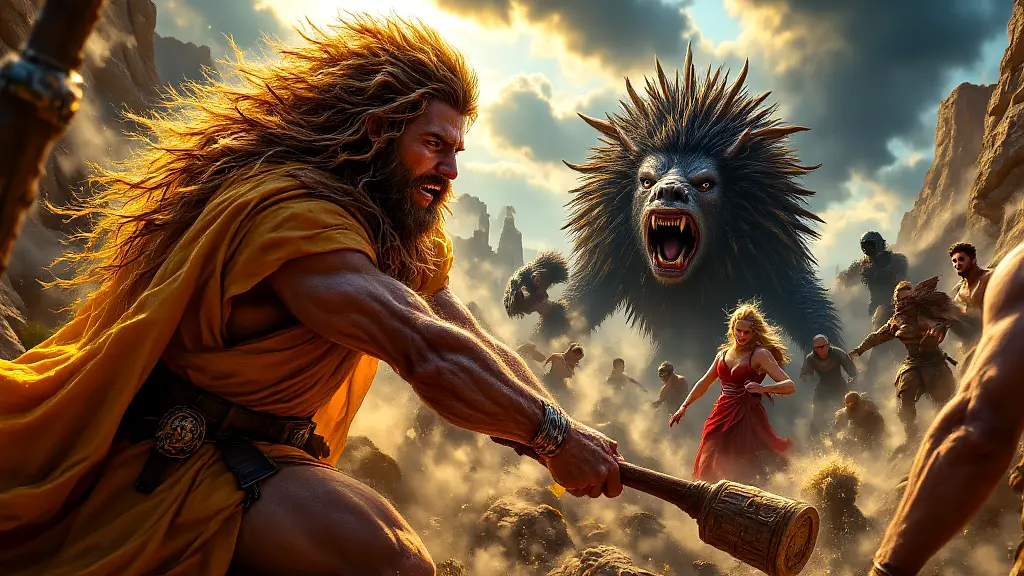
Originally named Alcaeus, he became Heracles (“Glory of Hera”), which shows his strange connection to the gods. His name honors Hera, which is ironic since she hated him for being Zeus’ son. The “-acles” part means glory, while “Hera” refers to the queen of gods, making his name both honor and insult the goddess.
The Twelve Labors were impossible challenges given to Heracles after he killed his family during a madness. King Eurystheus, following Hera’s wishes, ordered these tasks that included killing monsters like the Nemean Lion and finding magical items like the Golden Apples. Ancient writers don’t agree on the exact order, but these labors punished Heracles while also cleaning his reputation, changing him from a troubled man to Greece’s most famous hero.
Heracles got his name from Hera, the goddess who hated him, and his famous Twelve Labors were impossible tasks meant to punish him but ended up making him Greece’s greatest hero.
Odysseus’ Cleverness in the Trojan War
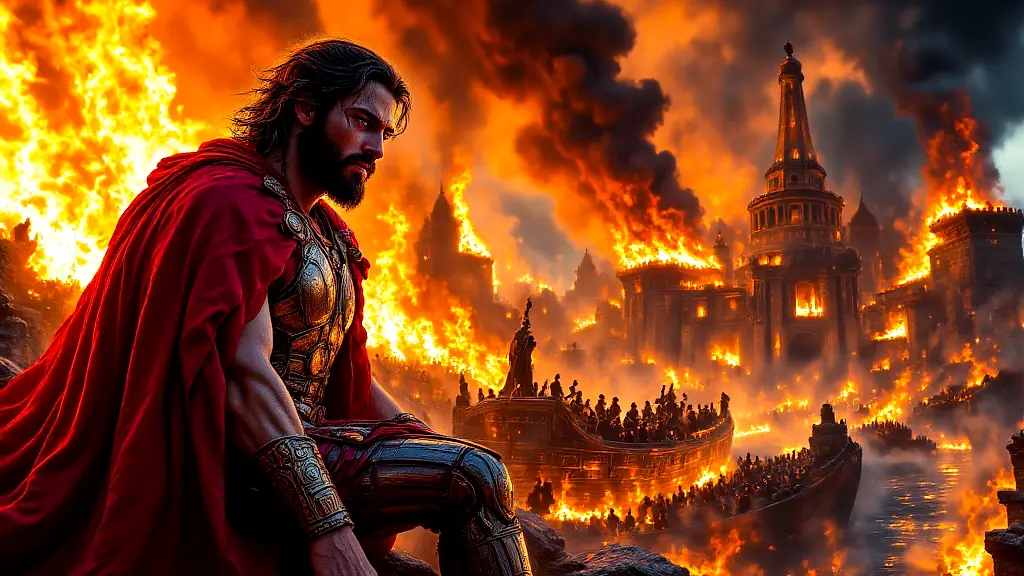
Odysseus proved himself as Greece’s smartest tactician during the Trojan War, acting as the Greeks’ master strategist. He created the Trojan Horse plan (although some say Athena helped with the idea), pretended to be crazy to dodge the draft until Palamedes saw through his act, and often negotiated for the Greeks. Through all this, he still followed xenia, the important Greek rules of hospitality, even during war.
His clever thinking made up for not being as strong as warriors like Achilles, showing intelligence could defeat pure strength. The name Odysseus comes from the Greek word meaning “to hate” or “be angry at”, which seems odd for someone known for patience. Experts argue whether this means others were angry at him (like Poseidon’s grudge) or if he hid his own anger most of the time.
Homer shows both sides – a man who suffered through twenty years of hardships, but who also took brutal revenge when he finally killed all of Penelope’s suitors after returning home.
Perseus and the Gorgon Slaying
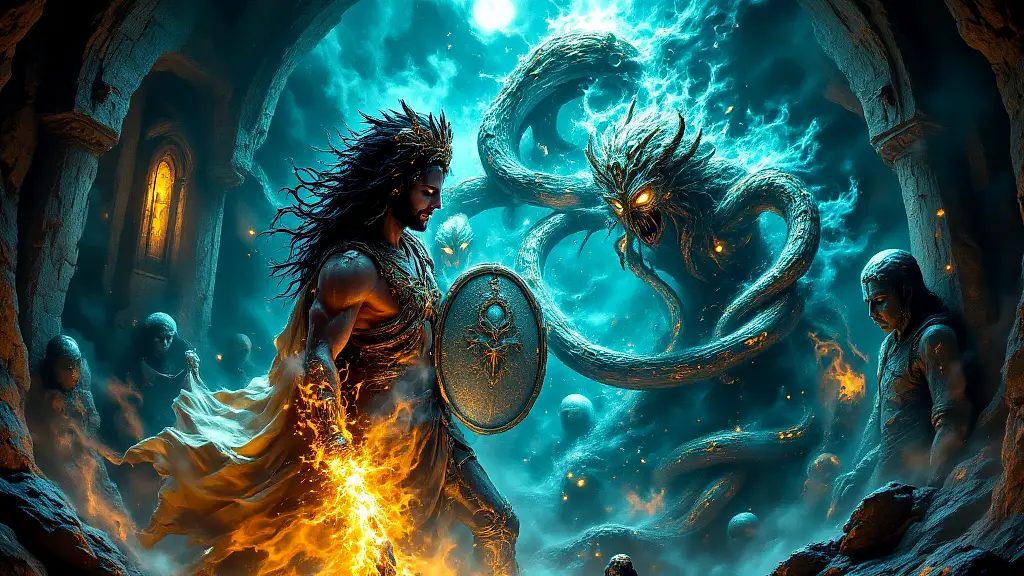
King Polydectes sent Perseus on what seemed like an impossible task – to bring back Medusa’s head, expecting the young hero to die. However, with unusual help from the gods, Perseus received special tools for his mission. Hermes gave him winged sandals, Athena provided a polished shield, and Hades lent his helmet of invisibility.
The Gray Sisters told him where to find Medusa after persuasion, while nymphs supplied a magic bag and sword. These gifts changed what seemed like certain death into a well-planned attack against the only Gorgon who could be killed.
When Perseus faced Medusa, he used Athena’s shield as a mirror to look indirectly at her, which worked similarly to how mirrors help avoid direct vision. While the monster slept, he cut off her head with one quick motion. From her neck came Pegasus, the flying horse, and Chrysaor, the golden warrior.
Perseus kept the dangerous head and used it during his journey home, turning enemies like the sea monster Cetus into stone. This showed how he could use his enemy’s power against others.
Names Linked to Divine Powers
Heroes’ names showed their legendary deeds, and gods’ names worked the same way. What the gods were called represented their actual divine powers, giving us clear insight into how the ancient Greeks understood these sacred beings.
Names from the Underworld’s Shadows
The Olympian gods have names that represent powerful deities, but the underworld has its own distinct naming patterns. These names directly connect to Hades’ kingdom and its permanent residents.
How Ancient Greeks Chose Names
Ancient Greeks put careful thought into naming their children. They typically followed these patterns:
- Honoring gods: Many names referenced deities, like Dionysios (for Dionysus) or Herodotus (“gift of Hera”)
- Celebrating virtues: Names like Ariston meant “excellence”, while Nikias stood for “victory”
- Family connections: Patronymics preserved lineage by showing who someone’s father was
- Special circumstances: Some names marked unusual births or events
- Personal traits: Others described occupations or physical characteristics
This wide variety of significant names shows how much value Greek society placed on both religion and personal identity.
FAQs
How do I pronounce ancient Greek names like Aeschylus?
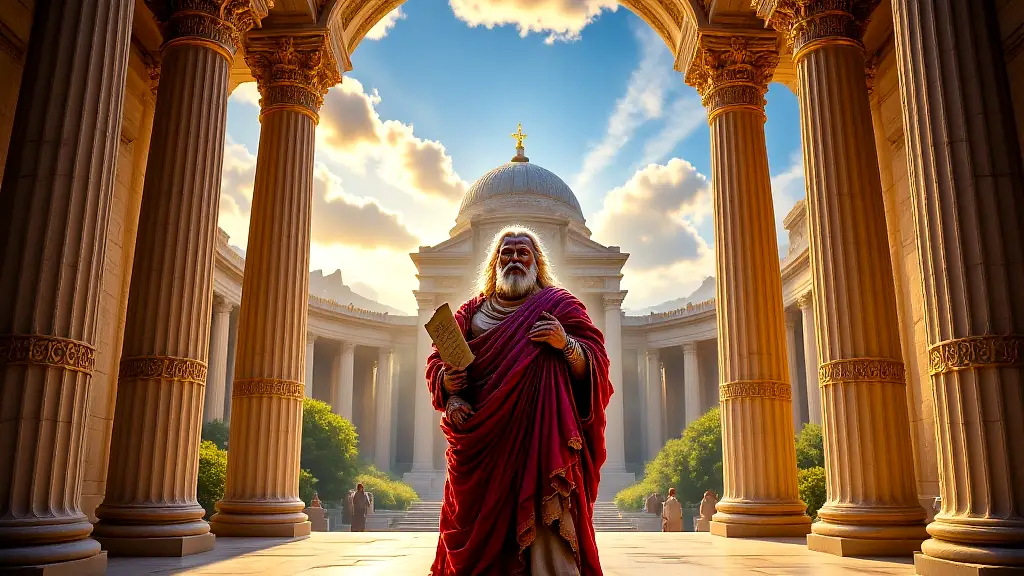
Pronouncing ancient Greek names like “Aeschylus” follows classical rules, with “Aeschylus” said as “ES-kuh-lus.”
Are there dark or tragic names to avoid?
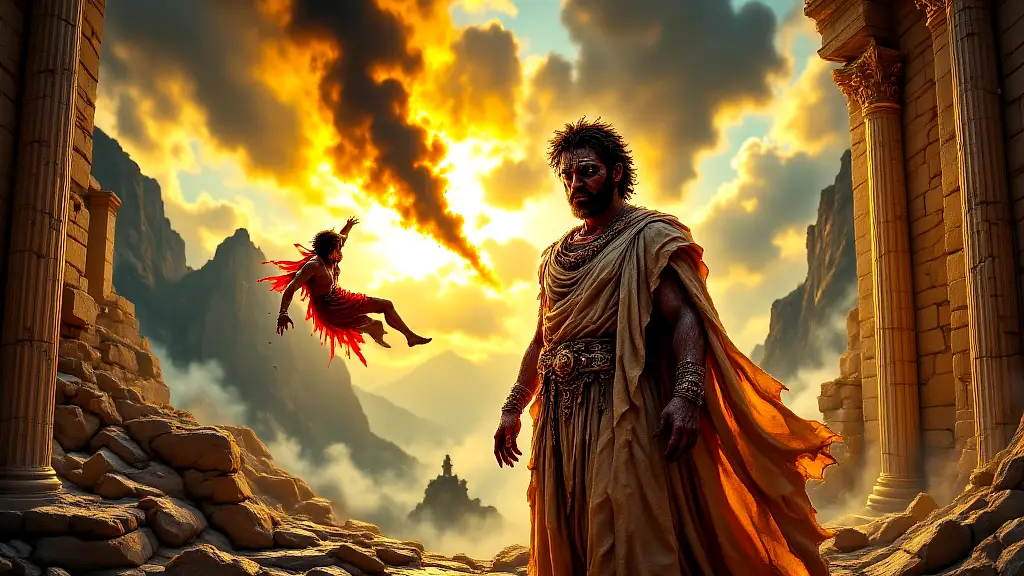
Dark or tragic names to avoid include those tied to doomed figures like Oedipus or Icarus from Greek myths.
Can these names work in modern times?

These names can work in modern times, as many Greek mythology names like Jason and Orion remain popular today.
What’s the difference between Zeus and Jupiter?

The difference between Zeus and Jupiter is that Zeus is the king of the Greek gods, while Jupiter is his Roman counterpart with nearly identical traits but distinct cultural origins.



